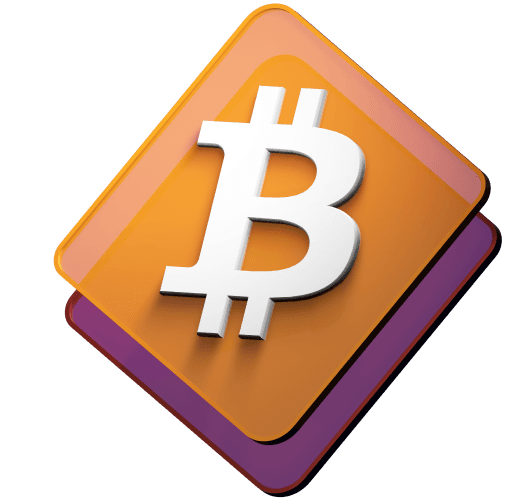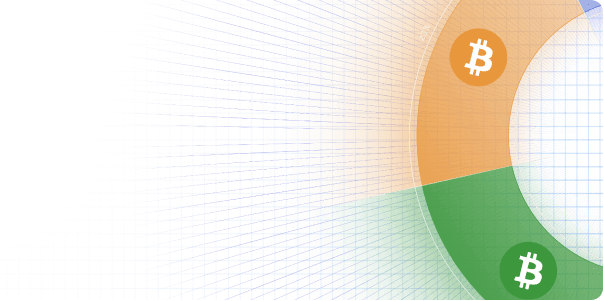Learn
The essentials to get started using TracerLearn how to use Tracer’s products

Gain a more in-depth
understanding of the Tracer
Protocol and its capabilities.

The home of Tracer’s
documentation


The latest research from Tracer and the
RMIT Blockchain Innovation Hub. Every
fortnight on Twitter and YouTube.

Tracer drop #21 | Trading competition on Arbitrum testnet
In today's Tracer Drop, we talk about our upcoming Trading Competition, which will award over $25,000 in prizes. We also explored a little more about our upcoming Perpetual Pools V2. Don't forget to sign up for our trading competition for a chance to win prizes and also to participate in building our V2 Much more to come! Subscribe and tune in next time to more crypto related content Timestamps: 00:00-01:35 Introdution 01:36-03:10 Overview of the last few months of Tracer (V1) and V2 introduction 03:11-09:42 Trading Competition (overview) and other Bounties 09:43 -14:15 How to participate on the trading competition and how to prepare yourself 14:16-15:10 Tracer mission and why we are launching V2 15:11-16:16 Josh personal experience 16:17-17:18 Where to ask questions about the competition 17:20-19:15 Josh and his trading strategies 19:16-21:09 Which assets will be traded in the competition and some reminders 21:10-29:55 Questions and community interaction 29:56-30:20 Closing 🔗 Visit our website: https://tracer.finance/ 👋 Join the community in Discord: https://discord.com/invite/tracerdao 📢 Follow Tracer on Twitter: https://twitter.com/TracerDAO 👨💻👩🏽💻👨🏿💻 Join the DAO: https://tracerdao.notion.site/Tracer-DAO-Contributor-Hub-facf7139e53840da96a8d12a82364986 Find Chris Berg on Twitter: https://twitter.com/chrisberg Find Jason Potts on Twitter: https://twitter.com/profjasonpotts Find Sinclair Davidson on Twitter: https://twitter.com/SincDavidson #tracerDAO #Arbitrum #crypto

Making the most of a DAO | Tracer Drop #18
In today's Tracer Drop we talk about how to make a DAO work, addressing some difficulties of this system that is still under development, such as issues of governance, subdaos, organization and the decision-making process. Furthermore, we also talk about strategies for developing a DAO and about DAO tools. Timestamps: 00:00-01:19 Introduction and EthDenver reminder 01:20-05:55 How to make DAOs efficients in what they propose to do 05:56-12:13 DAOs vs Companies: Decision making, organization and scaling 12:14-16:26 Delegating power to small comitees/ counsel on a DAO 16:27-22:01 Governance Structures: polycentric vs monocentric 22:02-24:23 The three faces os DAOs problems 24:23-30:29 Veto Process on DAOs: Where this border sits? 30:30-34:11 DAO Tools on decision making and governance ====================== NOTES How to make a DAO work Introduction This is the 18th Tracer Drops Series with the RMIT Blockchain Innovation Hub. Today we focus on how to make a DAO work. How to make DAOs genuinely efficient? How to organize the decision process and governance of a DAO? How to make DAOs efficient in what they propose to do Public policymakers are getting interested in DAOs but want to know more about it DAOs need to be efficient in comparison to corporations and companies Electronic Market Hypothesis: More market oriented team in comparison to hierarchical team behavior Human capital is getting more valuable than financial capital, but this is hard to explain to insiders and even harder to outsiders DAOs vs Companies: Decision making, organization and scaling DAOs take different forms, some of them start implementing process and smaller groups that make them look like a more firm style organization In startups there will probably be a group of people very close, but with the development of it, this tends to become increasingly difficult, this might be something to think about in a DAO DAOs can implement mechanisms that help on that bootcamp phase Decision making trade off: trading off the cost of having a bunch of powerless shareholders vs a bunch of people arguing so much on a discord room that they cant get anything done Delegating power to small committees/ counsel on a DAO Achieving this trade off can be done by delegating powers, but this turns out to be different for each type of decision in a DAO Tracer DAO example: we are scaling and getting to a point where power can be more delegated to a committee mode Governance Structures: polycentric vs monocentric In a monocentric model of governance, everything is decided by a single structure. In the polycentric model, there are more economic benefits, although it is messier, it is more dynamic and generates more learning among different groups. There is a move as DAOs mature to move away from a monocentric governance model towards counsels The reason why power is being delegated is important and needs to be analyzed because this will end up creating different governance structures It is important that the people who make the decisions are also beneficiaries of those decisions made The three faces to DAOs problems Lack of clear role of focus and responsibility, governance for token holders, ambiguity of values and priorities need to be thought and organized simultaneously If these three things are resolved and if we can show that data can be scalable through a polycentric decision model, we will have an interesting tool to present and demand some kind of regulatory framework Veto Process on DAOs: Where this border sits? If a committee or subdao starts doing something wrong, there needs to be something to stop those decisions from happening, a veto power. not every decision needs to be made by everyone in a DAO, because not everyone needs to know everything that is happening there, but for some decisions it is important to have something like this veto power It's very difficult to define where the border of veto power lies DAO Tools on decision making and governance A lot of DAO tools are being developed to help DAOs function well, and that means that a lot of governance process will probably be improved DAO tools need to be compatible with each other, there needs to be a integration between tools, so that they can be put together 🔗 Visit our website: https://tracer.finance/ 👋 Join the community in Discord: https://discord.com/invite/tracerdao 📢 Follow Tracer on Twitter: https://twitter.com/TracerDAO 👨💻👩🏽💻👨🏿💻 Join the DAO: https://tracerdao.notion.site/Tracer-DAO-Contributor-Hub-facf7139e53840da96a8d12a82364986 Find Chris Berg on Twitter: https://twitter.com/chrisberg Find Jason Potts on Twitter: https://twitter.com/profjasonpotts Find Sinclair Davidson on Twitter: https://twitter.com/SincDavidson ---------- #TracerDAO #Crypto #Derivatives

Can Crypto Regulation help mass adoption of crypto? | Tracer Drop #20
In today's Tracer Drop we talk about Crypto Regulation, mentioning the situation of crypto regulation in places like Australia, the US and Europe, as well as mentioning how this regulation can be beneficial for the growth and mass adoption of cryptocurrencies. We also talked about how regulation might affect the DeFi ecosystem. Finally, we talked about ZkSync's KYC protocol and how the government will need to adapt to implement these regulations for cryptocurrencies, especially with regard to privacy. Subscribe and tune in next time to more crypto related content TimeStamps 0:00 - 1:15 Intro 1:16 - 2:24 Huge investigation in Australia Goverment, USA executive order, European Union comprehensive framework 2:25- 5:00 Where we are in the cycle of Regulation (Jack Deeb) 5:00-8:47 Consumer protection, Public policy economist- How do we strike a balance? 8:48-9:35 How closely governments was engaging in the industry 9:36 - 10:40 What are the risks nd challenges in Australia from a political cycle. 10:41 - 14:45 Do regular people around the world care about crypto? 14:46-17:35 Inquires investigating crypto, what do we need to talk more about? 17:36 - 20:57 Zk kyc Model explained , off chain Data on chain. 20:58- 21:27 Privacy concerns 21:28 - 24:23 - what mindset shift has to occur in order to implement ZK kyc. We don´t have privacy against our goverments. 24:24 - 25:25 Regulation in DAOs, any liability protection? Goverments care about how the tax frame will be. 25:26 - 27:43 For the crypto ecosystem, what stories do we have to tell? 🔗 Visit our website: https://tracer.finance/ 👋 Join the community in Discord: https://discord.com/invite/tracerdao 📢 Follow Tracer on Twitter: https://twitter.com/TracerDAO 👨💻👩🏽💻👨🏿💻 Join the DAO: https://tracerdao.notion.site/Tracer-DAO-Contributor-Hub-facf7139e53840da96a8d12a82364986 Find Chris Berg on Twitter: https://twitter.com/chrisberg Find Jason Potts on Twitter: https://twitter.com/profjasonpotts Find Sinclair Davidson on Twitter: https://twitter.com/SincDavidson

NFT Gaming - The Future of DeFi and Decentralised Gaming | Tracer Drop Episode #16
NFT Gaming - The Future of DeFi and Decentralised Gaming. What gaming opportunities exist in the crypto space? What gaming opportunities exist for Tracer? Eg NFT Gaming and hedging assets with Perpetual Pools. Today we focus on the future of DeFi and decentralized gaming on the 16th Tracer Drop Series with the RMIT Blockchain Innovation Hub. 00:00 - Introduction 04:58 - Gaming and economics 19:27 - Economic innovation with gaming 22:41 - Opportunity for DeFi and NFT Gaming 32:12 - NFT Game opportunities for Tracer DAO Note: all timestamps are approximate Books/shows/movies/games mentioned - Games and Economic Behavior by John von Neumann and Oskar von Morgenstern (05:16) - Play Money, Netflix Documentary (12:50) - DeFi Kingdoms, DeFi game (13:32) - Axie Infinity, game (32:12) - Ready Player One, book and film (40:29) - Ender's Game, book and film (40:32) 1. Is DeFi Kingdoms changing the play-to-earn model by backing game activity with DeFi activity? Is this an opportunity to change games from fun activity to economic activity? Are there opportunities for education/educators? ( - Axie Infinity is fantastic despite the common complaint “that it is irresponsible” - Play is itself a learning activity 2. How do we combine gamification of trading in markets with investor protection? - If you are a game developer, one of the things you could easily do is work with the regulatory authorities - If you're an economic designer, one of the things you could do is to ensure your customers (players) don't lose unfairly Gaming and economics - Economies are games - Definition of both economies and games: Different parties’ strategic behavior under no one rule systems - Early 20th-century classical economic thinking focused on ideas of rationality - But there existed a big gap in understanding about strategic behavior - Game Theory became a model of strategic rationality in a world of potential competitors - Modern gaming is similar to economic design: Both involve trading things and building structures in which things can happen - But there’s a lot of pushback from these ideas. For example, financial regulators consider the gamification of trading as irresponsible - How can one extrapolate a leisure game to an economic game? - Leisure games use artificial constraints, but economic games also have resource constraints, namely time - When playing games, we are exploring different rule sets and learning in a constrained environment - Also, consider open-ended and close-ended games. - In a closed-ended game, one just wants to win… - But in an open-ended game, one wants to keep the game going - And how you keep the game going, is to ensure everybody benefits from the game, so you don't have a closed-ended game… - And that's what an economy is, it's an open-ended game Economic innovation with gaming - What does innovation look like in sports and games? - Two types of innovation in games/sports: Industrial innovation and institutional innovation - There are similar parallels in a modern economy… - There are two ways an economy can grow and evolve. One, you can have more industrial technologies in that economy… - Or you can design new rule systems, new institutions in the economy. This changes the regulations/rules of the game - Importantly, this gives you two big pathways forward for economic growth - With E-gaming and metaverses, we tend to think of these as a simulation environment for exploring different rule configurations for economies and testing those out - Using games as simulation environments, or testbeds, for the economy is something that we haven't mastered yet Opportunity for DeFi Are there opportunities for DeFi and complex financial products? NFT Game opportunities for Tracer DAO - Possible future products: A Tracer market for Axie Infinities. Allows a user to hedge their exposure to the price risk of holding an in-game NFT. - Also, consider the governance of these games. Governance may shift from large corporations to DAOs - Ultimately, combining gaming with DeFi and DAO innovation allows more people the opportunity to redesign new incentive structures more often (this is something rare, only happing every 1000 years, or so) 🔗 Visit our website: https://tracer.finance/ 👋 Join the community in Discord: https://discord.com/invite/tracerdao 📢 Follow Tracer on Twitter: https://twitter.com/TracerDAO 👨💻👩🏽💻👨🏿💻 Join the DAO: https://www.notion.so/tracerdao/Tracer-DAO-facf7139e53840da96a8d12a82364986 Find Chris Berg on Twitter: https://twitter.com/chrisberg Find Jason Potts on Twitter: https://twitter.com/profjasonpotts Find Sinclair Davidson on Twitter: https://twitter.com/SincDavidson
Lorem ipsum dolor sit amet, consectetur
adipiscing elit. Malesuada nibh elit


Introducing Tracer DAO The Future of Derivatives Ray Mogg

Pat McNab: Intro to Tracer DAO—Tracing Digital and Real World Markets
At SmartCon, Pat McNab introduced Tracer Dao, a smart contract infrastructure for secondary markets that traces digital and real-world assets, enabling users to reliably manage risk. Learn more about how Tracer DAO tracks real-world assets: https://tracer.finance Check out other presentations from our complete Smart Contract Summit #1 playlist: https://youtube.com/playlist?list=PLVP9aGDn-X0RO9JXbc8ayQtIp_DyhlA9s Chainlink is the industry standard oracle network for powering hybrid smart contracts. Chainlink Decentralized Oracle Networks provide developers with the largest collection of high-quality data sources and secure off-chain computations to expand the capabilities of smart contracts on any blockchain. Learn more about Chainlink: Website: https://chain.link Docs: https://docs.chain.link Twitter: https://twitter.com/chainlink Discord: https://discordapp.com/invite/aSK4zew Newsletter: https://chn.lk/newsletter Telegram: https://t.me/chainlinkofficial Talk to an expert: http://chn.lk/contact
The essentials to get started
using Perpetual Pools

Perpetual Pools is native to Arbitrum. Arbitrum is an Ethereum L2, which means it has the security of the Ethereum blockchain but is cheaper and faster to use. Once you’re connected, minting leveraged tokens is a breeze. Check out our Arbitrum guide to get setup.
Normally, to trade with leverage you need to borrow money. Borrowing lets you take on a bigger position than you could get with your initial capital, so, once the debt is paid off, any profits or losses you make are amplified. With Tracer, you can get leveraged exposure without borrowing or worrying about margin calls and liquidations. Read more about Tracer’s Power Leveragee here.
Yes. At Tracer, security is of the upmost importance. Find our extensive list of protocol audits here
A Perpetual Pool market is basically a wager (or trade) between two groups of people who think something will either increase or decrease. The thing people are speculating might increase or decrease is typically the price of an asset like Bitcoin or Ethereum, but it can be anything - even the temperature.
We call the thing that people are making trades on theprice feed, and the price feed is supplied by an oracle.
To learn more about Perpetual Pools, read this explainer.
Yes. Perpetual Pools are a marketplace for leveraged tokens, while perpetual swaps simulate spot trading with margin. They are both derivatives, but, unlike perpetual swaps, you don’t need an account with an exchange to trade Perpetual Pool tokens. That’s because the tokens act most like a leveraged ETF, where positions are transferable. Read more here.
The way the Perpetual Pool market calculates how much money to move from the losers to the winners prevents the loser from ever losing 100% of their money. The pool does this by, in extreme scenarios, sacrificing some of the gains of the winners in order to protect the losers from losing everything. This is why we say Perpetual Pool positions cannot be liquidated.
However; this does not mean you cannot lose money by trading with Perpetual Pools.
the Tracer DAO?









